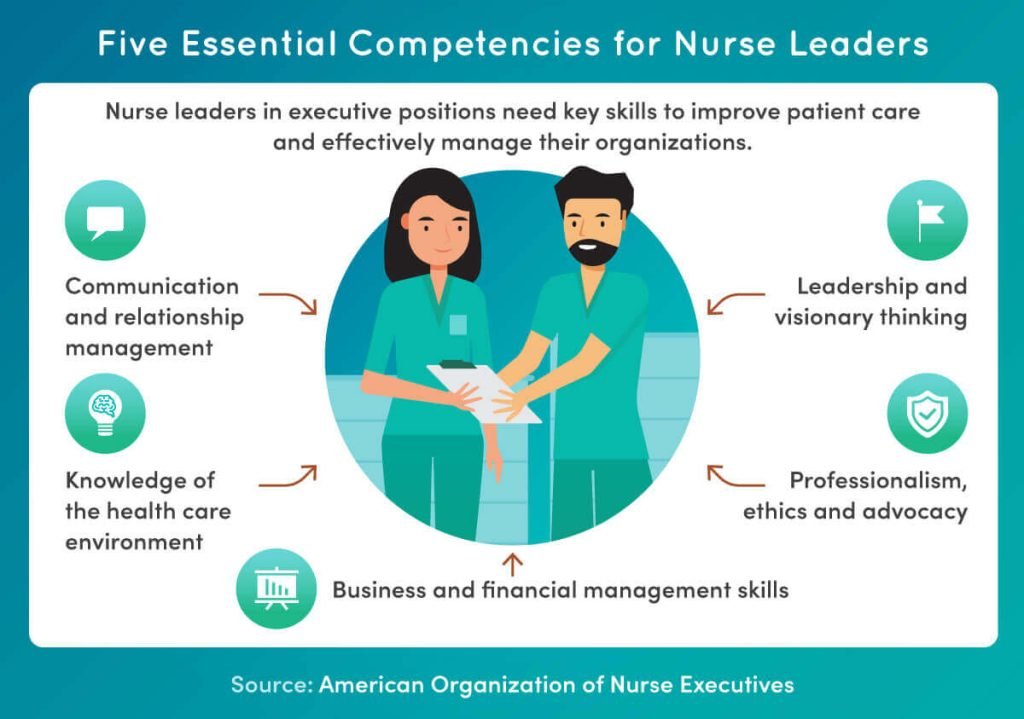
Nursing is a noble profession that requires compassion, dedication, and a strong commitment to patient care. In recent years, the role of the nurse has expanded to include leadership and management responsibilities. Nurse leaders play a critical role in shaping the future of healthcare, ensuring quality patient care, and driving innovation in the field. Becoming a nurse leader is a challenging but rewarding career path that requires education, experience, and a commitment to lifelong learning.
In this article, we will explore how to become a nurse leader, including the education and experience requirements, the skills needed to be an effective leader, and the career opportunities available in this field.
Education Requirements for Nurse Leaders
The first step to becoming a nurse leader is to obtain a Bachelor of Science in Nursing (BSN) degree. Many nurse leaders also have a Master of Science in Nursing (MSN) degree, which is required for some leadership roles, such as nurse manager or director of nursing. The MSN degree focuses on advanced nursing concepts, leadership theory, and healthcare management.
Some nursing schools also offer specialized leadership programs, such as a Master of Nursing Leadership (MNL) or a Doctor of Nursing Practice (DNP) with a focus on leadership. These programs provide in-depth education on leadership, healthcare management, and organizational behavior.
Experience Requirements for Nurse Leaders
Nurse leaders must have a strong clinical background and a thorough understanding of patient care. Most nurse leaders have several years of experience working in a clinical setting, such as a hospital or long-term care facility. Experience in a specialty area, such as pediatrics, critical care, or oncology, can also be beneficial.
In addition to clinical experience, nurse leaders must have experience in leadership and management. This can include experience in charge nurse or nurse supervisor roles, or involvement in committees or projects related to quality improvement, patient safety, or staff development.
Skills Needed to be an Effective Nurse Leader
In addition to education and experience, nurse leaders must possess a unique set of skills to be effective in their roles. Some of these skills include:
- Communication: Nurse leaders must be skilled communicators, able to effectively communicate with patients, staff, and other healthcare providers. They must be able to listen actively, provide clear instructions, and communicate complex ideas in simple terms.
- Problem-solving: Nurse leaders must be able to identify problems and develop solutions to improve patient care and staff performance. They must be able to analyze data, think critically, and make informed decisions.
- Collaboration: Nurse leaders must be able to work effectively with other healthcare providers, such as physicians, pharmacists, and therapists. They must be able to build relationships, negotiate effectively, and work collaboratively to achieve shared goals.
- Leadership: Nurse leaders must be able to inspire and motivate staff, provide direction and guidance, and set expectations for performance. They must be able to lead by example, develop a vision for the future, and create a positive work environment.
- Time management: Nurse leaders must be able to manage their time effectively, prioritize tasks, and meet deadlines. They must be able to balance competing demands and make efficient use of their time.
Ways Nurses Can Develop Their Nursing Leadership Skills
Career Opportunities for Nurse Leaders
Nurse leaders have a wide range of career opportunities available to them. Some of the most common roles for nurse leaders include:
- Nurse manager: Nurse managers are responsible for overseeing the day-to-day operations of a nursing unit or department. They are responsible for staffing, budgeting, quality improvement, and patient care.
- Director of nursing: Directors of nursing are responsible for the overall nursing operations in a healthcare facility, such as a hospital or long-term care facility. They are responsible for developing and implementing nursing policies, procedures, and protocols.
- Chief nursing officer: Chief nursing officers (CNOs) are the top nursing executives in a healthcare organization. They are responsible for setting the strategic direction for nursing services and ensuring that nursing practices align with the organization’s mission and values.
- Nurse educator: Nurse educators are responsible for developing and delivering educational programs for nurses and nursing students. They may work in academic settings, such as universities and colleges, or in healthcare organizations.
- Clinical nurse specialist: Clinical nurse specialists are advanced practice nurses who specialize in a particular area of nursing, such as critical care, oncology, or pediatrics. They provide direct patient care, educate staff, and participate in research and quality improvement initiatives.
- Nurse researcher: Nurse researchers conduct studies and research projects related to nursing practice, patient care, and healthcare delivery. They may work in academic settings or in healthcare organizations.
- Nurse entrepreneur: Nurse entrepreneurs are nurses who start and run their own businesses related to healthcare, such as home healthcare services, medical staffing agencies, or healthcare technology companies.
Conclusion
Becoming a nurse leader requires a combination of education, experience, and skills. Nurse leaders play a critical role in shaping the future of healthcare, ensuring quality patient care, and driving innovation in the field. If you are interested in pursuing a career as a nurse leader, consider obtaining a BSN degree, gaining clinical and leadership experience, and developing the necessary skills to be an effective leader. With dedication and hard work, you can achieve your goal of becoming a nurse leader and making a positive impact in the healthcare industry.
Find online help in writing essays, research papers, term papers, reports, movie reviews, annotated bibliographies, speeches/presentations, projects, presentations, dissertation services, theses, research proposals, essay editing, proofreading, Book reviews, article reviews, formatting, personal statements, admission essays, scholarship essays, application papers, among others.


 WRITE MY ESSAY NOW!
WRITE MY ESSAY NOW!